Inner mind
Updated: 2016-09-06 07:44
By Deng Zhangyu(China Daily)
|
||||||||
Roger Ballen presents life's absurdities through black-and-white images in Beijing, Deng Zhangyu reports.
American photographer Roger Ballen's distinctive style of black-and-white images are mostly described as "weird" by viewers because of the provocative themes.
People can now get a glimpse of his artistic works at an ongoing show in Beijing. The exhibition hall of the art museum at the Central Academy of Fine Arts has been transformed into a gray-colored theater-like area. Ballen's photos are either suspended in the air or mounted on tilted wooden frames, some as high as 4 meters.
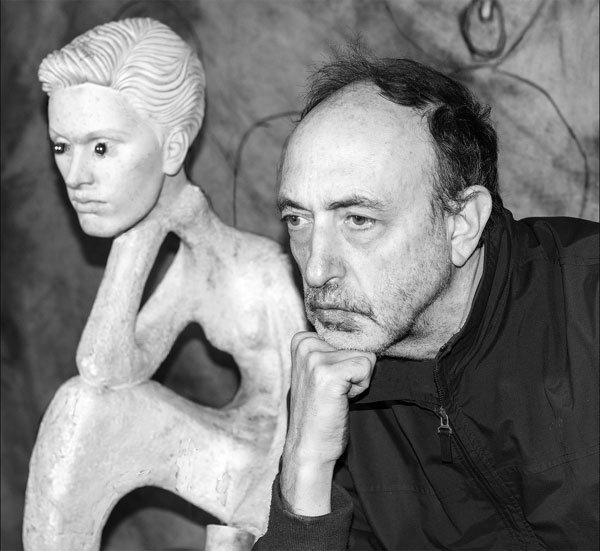
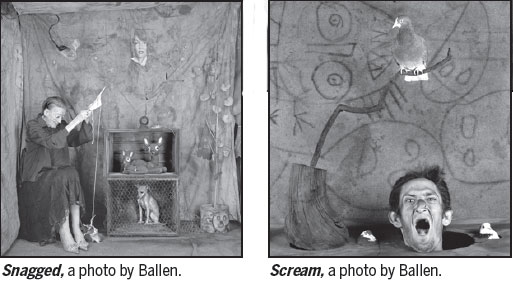
To echo the show's title, Theater of the Absurd, Ballen has decorated a part of the area in the style of his pictures. Other than putting up his photos on the walls, he has painted the walls in parts, too, and has installed animal sculptures on the floor. There are chairs for visitors as well.
"It's great! There are few times in my lifetime that things have been so interesting," the 66-year-old photographer says about his first show in Beijing.
Every year, Ballen holds shows in different cities across the world. But he calls the Beijing show "unique" as it tries to explore a more interactive space with the audience.
Fan Di'an, president of the Central Academy of Fine Arts, says: "When I walk into the show space, I am both a visitor and an actor of the 'theater'."
Ballen's works are a mix of drawings, installations and photography. His square photos always include wires, animals, discarded stuff and graffiti on walls, bearing a distinctive aesthetic.
The show features photos he took in South Africa in the past 20 years as well as two videos, including the music video I Fink U Freeky that he co-directed for the musical duo Die Antwoord.
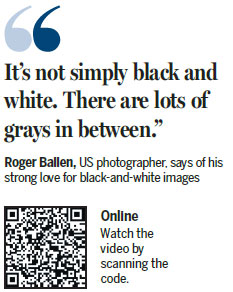
Cai Meng, curator of the show, says he met Ballen in 2013 at the Pingyao International Photography Festival, where the Johannesburg-based artist won the biggest award of the festival in North China's Shanxi province.
"Many contemporary Chinese photographers are influenced by him," says Cai.
Ballen was born in New York and moved to Johannesburg in the 1970s.
He started his work in South Africa as a geologist and then kept recording life in towns and villages by taking photos, with portraits being his main subjects. Since 2000, Ballen has changed his approach to tableaux, an abstract way of photography that combines installations, sculptures, films and photography.
It's common to see animals in his pictures - rats, birds, geese, snakes and even lions are included in his "crew" list since Ballen calls himself the director of his photos.
"Birds fly fast. Cats are the worst to control. I just take photos spontaneously when they move, maybe a good one or not. It all happens naturally," says Ballen.
"I can speak cat language in order to know what they're thinking. But cats never tell me what they want," he says, jokingly.
Animals in his pictures add a sense of reality into his fictionalized visual works, he explains.
Ballen says each picture needs thousands of steps for preparation, even though the shooting takes only 15 minutes sometimes.
To set up a backdrop for his photos, he visited numerous flea markets in different parts of the world, hunting for things he wanted for his filming.
Prior to his Beijing show, he spent days visiting flea markets here looking for stuff he needed to build his "set" for the show.
"I'm a world expert on flea markets now. But it's hard to find something unique," he says, revealing a sense of humor, which can sometimes be seen in his works.
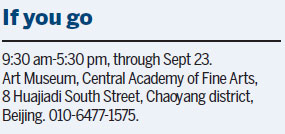
On the theme of his Beijing show, he says it is through "absurdity" that he understands life. Life is meaningless, he says philosophically. No matter what we do, we can't change our destinies.
Cai, the curator, says Ballen expresses the workings of the human mind, a consistent style that the photographer has pursued in his pictures to reflect people's thoughts.
Ballen's strong love for black-and-white images goes back 50 years to when he first used cameras to take portraits of people. The simple aesthetic approach followed through his career.
"It's not simply black and white. There are lots of grays in between," he says.
Contact the writer at dengzhangyu@chinadaily.com.cn
(China Daily 09/06/2016 page20)
- Xi tells Park China opposes deployment of THAAD in ROK
- Singapore confirms 27 new cases of Zika infection
- Russia, Britain agree to mend ties
- EU can't leave entire migration issue to mediterranean countries: official
- Rousseff appeals impeachment to Supreme Court
- Europeans displeased with their education systems

 In pics: Journalists cover G20 Summit in Hangzhou
In pics: Journalists cover G20 Summit in Hangzhou
 Air attendant 'incubator' welcomes freshmen
Air attendant 'incubator' welcomes freshmen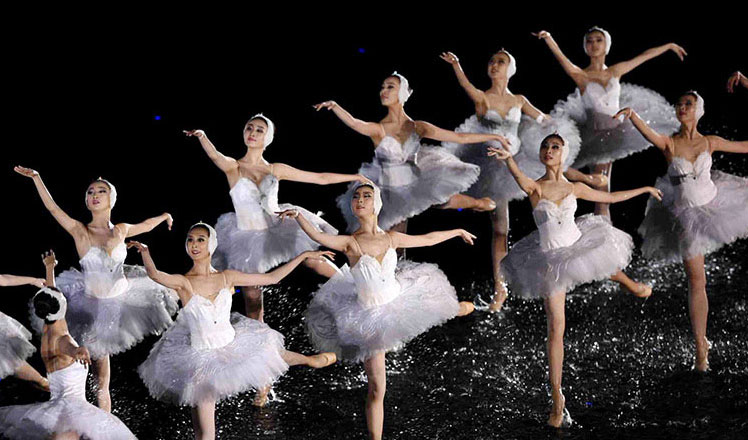
 Evening gala for G20 summit held in Hangzhou
Evening gala for G20 summit held in Hangzhou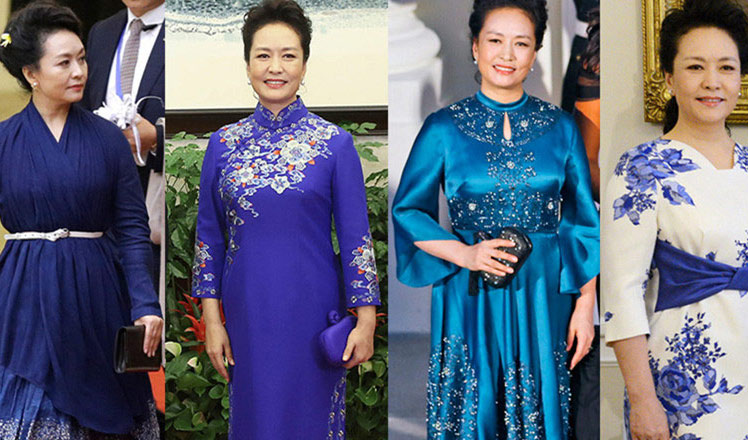
 First Lady fashion: Rhapsodies in blue
First Lady fashion: Rhapsodies in blue
 Hangzhou: A city of bridges in East China
Hangzhou: A city of bridges in East China
 Commemorative G20 stamps a hit at media center
Commemorative G20 stamps a hit at media center
 Ten photos from around China: Aug 26- Sept 1
Ten photos from around China: Aug 26- Sept 1
 Hangzhou: Paradise for connoisseurs of tea
Hangzhou: Paradise for connoisseurs of tea
Most Viewed
Editor's Picks

|

|

|

|

|

|
Today's Top News
Trump outlines anti-terror plan, proposing extreme vetting for immigrants
Phelps puts spotlight on cupping
US launches airstrikes against IS targets in Libya's Sirte
Ministry slams US-Korean THAAD deployment
Two police officers shot at protest in Dallas
Abe's blame game reveals his policies failing to get results
Ending wildlife trafficking must be policy priority in Asia
Effects of supply-side reform take time to be seen
US Weekly

|

|








